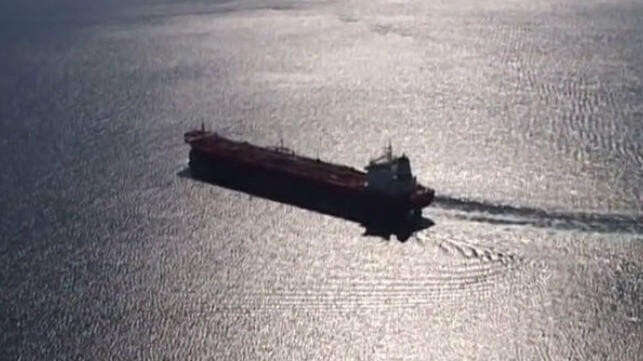Report: Tanker Turns Away from Indian Refinery as Sanctions Create Pressure

Media reports are highlighting the likely first impact from the European Union’s move last Friday (July 18) to further expand the sanctions on the Russian energy industry. President of the European Commission Ursula von der Leyen had commented that the goal was to continue to increase the pressure on Russia, and now both Bloomberg and Reuters are reporting that at least one tanker has turned away from an Indian refinery included on the new sanctions list.
India’s Nayara Energy was included in the listing by the EU due to the 49 percent investment stake held by Russia’s Rosneft. The EU reported it was targeting both Russian and international companies managing shadow fleet vessels, traders of Russian crude oil, as well as a major customer of the shadow fleet, a refinery in India with Rosneft as its main shareholder.
The Marshall Islands-flagged crude oil tanker Talara (73,371 dwt) is reported to have been under charter to BP and inbound to India’s Vadinar port. It is believed, according to Reuters, that it was to load a cargo of ultra-low sulfur diesel fuel on July 21 to be transported to Africa. Both Reuters and Bloomberg are confirming the tanker made an about-face and left the port without loading the cargo. Reuters says the tanker was placed back on the charter market, available for pickups in India or the Middle East.
It is likely the first sign of a “bite” from the sanctions, with Reuters highlighting, however, that several other tankers are scheduled to arrive at the Nayara Energy terminal. It points out that the company, in a statement, called the sanctions “unjust and unilateral.” Bloomberg reports Rosneft called the EU sanctions “unjustified and illegal.”
The EU, however, is highlighting that its actions are having an impact, but they can also be reversed when the ships abide by the restriction. It says as part of the 18th package that “the EU has accepted to remove three vessels from its list of sanctioned vessels following firm commitments that these LNG tankers will no longer engage in the transport of Russian energy to the Russian Yamal and Arctic 2 projects for which they had originally been commissioned.”
The EU in May listed three tankers operated by Japan’s Mitsui O.S.K. Lines. The vessels, North Light, North Moon, and North Ocean, are state-of-the-art carriers completed in late 2024 for the trade. MOL said when the vessels were listed that it was assessing the impact while promising to comply with applicable laws, regulations, and rules.
The Head of the Office of the President of Ukraine, Andriy Yermak, announced yesterday, however, that the Bahamas is also following the lead of the European Union and imposing restrictions on its ship registry.
"The Bahamas are officially depriving the Russian tanker fleet of its flag," Yermak announced on Telegram. “This is a blow not only to the sanction circumvention schemes, but also to the entire Russian economy, which is based on shadow oil and gas flows. The Russian Federation tried to hide its presence in world waters under foreign flags, fictitious owners. But even these loopholes are being closed.”
It is unclear how many tankers were in the Bahamas registry from the shadow fleet. United Against a Nuclear Iran (UANI) listed the Bahamas at the bottom of its ranking of flags for Iranian shadow fleet tankers, and the Bahamas has rarely, if ever, been mentioned for the Russian shadow fleet. Still, it is seen as another step in the efforts to increase pressure on sanction evasion efforts.
